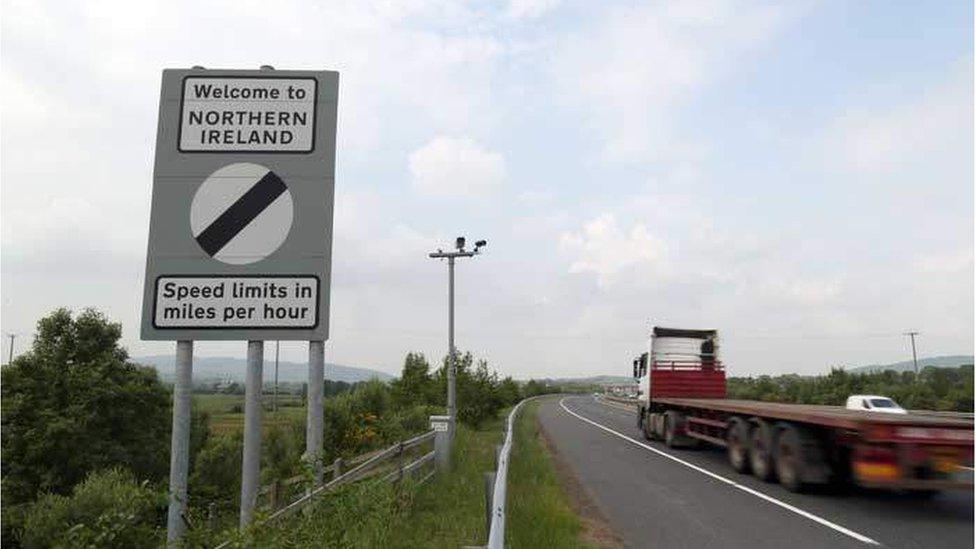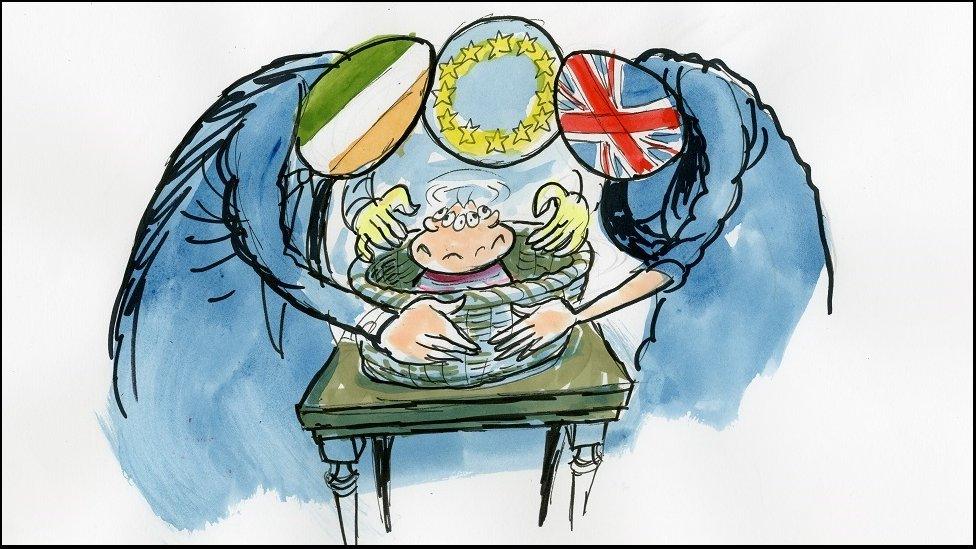Brexit: Progress check on Irish border issues
- Published
- comments

Technical talks in recent weeks have covered customs, the regulation of goods and the rights of individuals
Senior Brexit negotiators are due to meet later to assess if progress has been made on Irish border issues.
The UK and EU agree there should be no hard border, but differences remain on how to achieve that goal.
Technical talks in recent weeks have covered customs, the regulation of goods and the rights of individuals.
Monday's meeting will involve Olly Robbins, the Prime Minister's Europe Adviser and Sabine Weyand the EU's Deputy Chief Negotiator.
In March, EU leaders agreed to a 21-month Brexit transition period between March 2019 - when the UK officially leaves - and the end of 2020.
It is effectively a standstill deal which means the UK will continue to follow EU rules in that period and have unimpeded access to the single market.
However, the transition period will only be implemented if there is also a deal on the border.
In December, the EU and UK agreed that the border could be kept frictionless in three possible ways:
A comprehensive trade deal
A special arrangement for Northern Ireland which could involve technology or unique customs arrangements
A so-called backstop which could mean Northern Ireland or the UK as whole continuing to follow many EU rules
In February, the EU proposed a backstop which would involve the UK, in respect of Northern Ireland, maintaining full alignment with those rules of the EU's single market and customs union which support north-south cooperation.
However, despite agreeing to this in principle, the UK has rejected the EU's interpretation of what it means.
The Prime Minister said she could never agree to that as it would "threaten the constitutional integrity of the UK by creating a customs and regulatory border down the Irish Sea."
However she has committed to agreeing an "operational legal text" for a backstop option.
Last week the EU's chief negotiator Michel Barnier said that if the UK comes up with other solutions "we are ready to study and to work with them."
He added that the EU was "even ready to substitute the new solutions" if they solve the double problem of maintaining a soft border and respecting the integrity of the single market.
- Published30 December 2020

- Published7 March 2018
